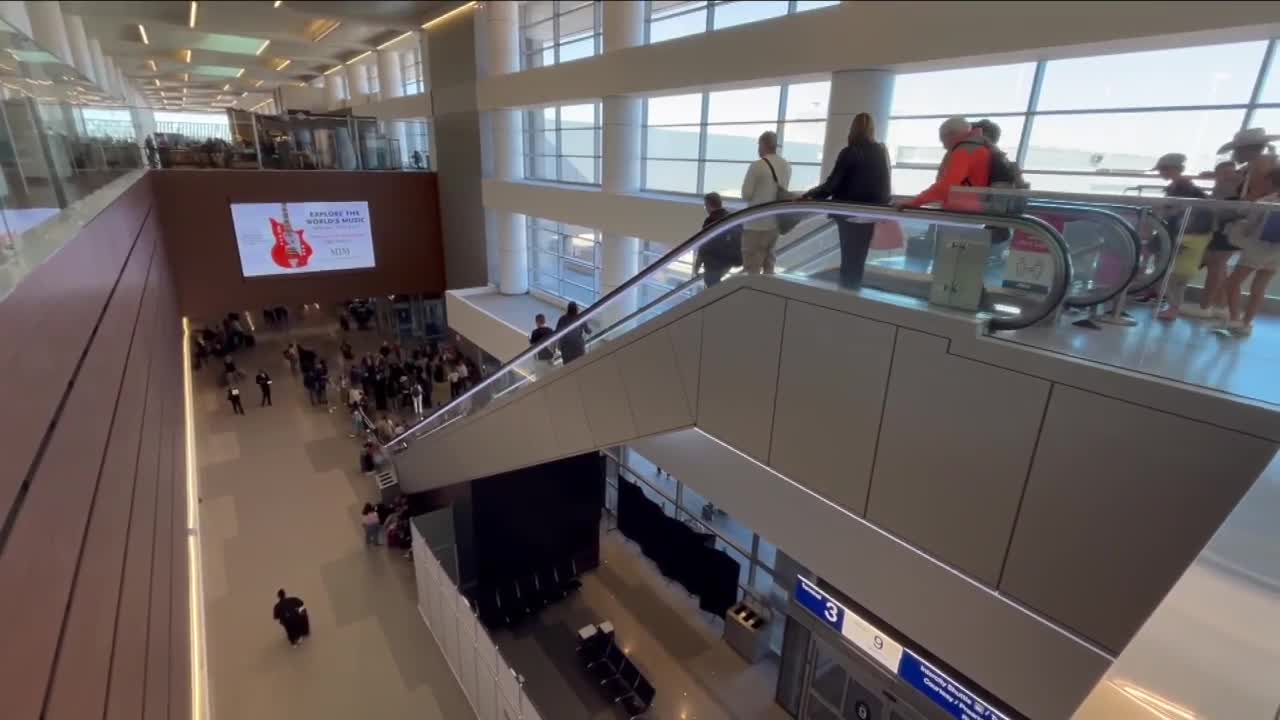PHOENIX — With the government shutdown stretching on, travelers are growing increasingly anxious about what it could mean for their holiday plans.
The Federal Aviation Administration reports that about half of all air traffic control facilities are facing staffing shortages. Starting Friday, flight capacity will be cut by about 10% in dozens of U.S. cities, as the Transportation Department works to maintain safety in the skies.
Looking to check the status of your flight? Check the FAA's website for the latest airport event updates.
Some travelers coming into Phoenix Sky Harbor International Airport on Wednesday said they’re already seeing longer lines and slower processing times at airports around the country.
“We got to the airport at about 3:30 in the morning,” A’Lan Luce of Washington said. “When we got there, the line was starting to wrap around.”
Others are growing more concerned as the holiday rush nears.
"Now I’m pretty concerned,” Dan Gaulin, a traveler from Florida, said.
Some flyers, like Karen McMahan from Michigan, think the disruptions driven by the government shutdown could drag on.
“I think they’re going to try to extend it to Thanksgiving, just to make a big impact,” she said.
For those who have already booked, Nancy Melton, a manager at Preferred Travel Services in Phoenix, says the best move is not to cancel your own trip.
“We don’t know, so don’t panic,” Melton said. “If the planes cannot fly, then the airlines have to do something about your ticket, and typically that’s a refund. If you cancel it yourself, you will not get that refund.”
Melton also warns that hotel cancellation policies can be stricter around the holidays.
“If your cancellation policy is approaching, you have to take a hard look and think, am I going to gamble this, or am I going to cancel?” she said.
Ted Rossman, a Bankrate senior analyst, says many travelers already have protection built into their wallets.
“A lot of credit cards have travel insurance protections built in,” he said. “I’m generally of the mind that you don’t need to pay for travel insurance.”
That protection can help cover delays or cancellations, but flexibility could also make a difference.
“Maybe that’s an early flight on Thanksgiving morning,” Rossman said. “Maybe it means taking a connecting flight.”
Rossman adds that pressure from the travel industry — and from unpaid federal workers — could ultimately push leaders to act.
“If they were to have some sort of mass strike or sick out, that could perhaps be a catalyst for ending the shutdown,” he said.
With airfare averaging between $500 and $750 for domestic flights, cost remains a major concern.
“No flying!” McMahan said. “I wouldn’t fly in this hot mess right now. I think it’s going to be nuts, so I would just wait until the new year.”
For now, some travelers are left waiting — and weighing whether the skies are worth the cost.
This story was reported on-air by a journalist and has been converted to this platform with the assistance of AI. Our editorial team verifies all reporting on all platforms for fairness and accuracy.




